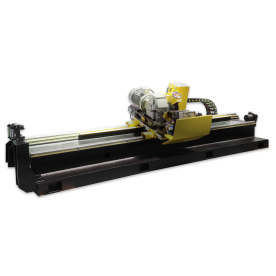In the rapidly evolving landscape of electronics and circuit design, precision is paramount. Engineers and designers strive to achieve the highest accuracy in their work, from the smallest components to the most complex systems. One essential tool that has gained prominence in this quest for precision is the precision impedor. This article will delve into the significance of precision impedors in circuits, exploring their function, applications, and advantages in improving circuit performance and reliability.
Understanding Impedance and Its Importance in Circuits

Enhancing Circuit Design and Performance: The Role of Precision Impedors for Accurate Impedance Measurement and Control
Impedance is a critical parameter in electrical engineering, encompassing both resistance and reactance. It defines how a circuit responds to alternating current (AC) signals and plays a vital role in various applications, including signal processing, communication, and power management. Accurate measurement and control of impedance are crucial for optimizing circuit performance, ensuring effective signal transmission, and minimizing losses.
What is a Precision Impedor?
A precision impedor is a specialized device used to measure and simulate impedance in electronic circuits with high accuracy. Unlike traditional resistors or capacitors, precision impedors are designed to introduce a predetermined impedance into a circuit, allowing engineers to examine the effects of various load conditions and configurations. These devices are commonly found in testing labs, research facilities, and during the prototyping phase of circuit design.
Key Features of Precision Impedors
1. **High Accuracy:** Precision impedors offer remarkable accuracy levels, often with tolerances of less than 0.1%. This high degree of precision is essential for applications demanding exact impedance matching, such as RF circuits and audio systems.
2. **Wide Frequency Range:** Many precision impedors are designed to function over a wide frequency range, accommodating high-frequency applications while maintaining accuracy and performance across different circuit types.
3. **Stability:** Precision impedors are built to deliver stable impedance values, minimizing variations due to environmental factors such as temperature and humidity. This stability is crucial for long-term reliability in circuit applications.
4. **Easy Integration:** These devices can be easily integrated into existing circuit designs, making them versatile tools for engineers. Their adaptability allows for seamless integration into both analog and digital systems.
Applications of Precision Impedors in Circuit Design
1. **RF and Microwave Applications:** In radio frequency (RF) and microwave circuits, impedance matching is vital for maximizing power transfer and minimizing signal reflection. Precision impedors enable engineers to achieve the desired matching conditions, enhancing signal efficiency and overall circuit performance.
2. **Audio Systems:** In audio applications, precision impedors assist in maintaining the quality of sound reproduction. By accurately controlling the impedance of speakers and other components, engineers can ensure optimal performance in audio systems.
3. **Signal Conditioning:** Precision impedors are also instrumental in signal conditioning applications. They help maintain signal integrity by providing the necessary impedance load for various signal processing components, thereby reducing noise and distortion.

Enhancing Circuit Design and Performance: The Role of Precision Impedors for Accurate Impedance Measurement and Control
4. **Measurement and Testing:** In research and development environments, precision impedors are invaluable for testing circuit responses under various load conditions. They allow engineers to simulate real-world scenarios and evaluate how circuits behave, leading to more effective designs.
The Advantages of Utilizing Precision Impedors

Enhancing Circuit Design and Performance: The Role of Precision Impedors for Accurate Impedance Measurement and Control
The benefits of incorporating precision impedors into circuit design extend beyond mere measurements. These tools contribute to enhanced performance, reliability, and efficiency in a variety of applications. By achieving accurate impedance levels, engineers can minimize signal losses, improve power efficiency, and ensure the integrity of the overall system.
Furthermore, precision impedors play a significant role in troubleshooting and diagnostics. They allow engineers to identify discrepancies in circuit behavior quickly, providing insights into potential issues regarding component performance or design flaws.
Conclusion
In conclusion, precision impedors are vital components in modern circuit design and testing. Their ability to deliver high accuracy in impedance measurement and control empowers engineers to create more effective, reliable, and efficient electronic systems. As technology continues to advance, the importance of precision impedors in optimizing circuit performance is only expected to grow. By integrating these tools into their workflows, engineers can enhance the precision and performance of their designs, leading to innovations that drive progress across various industries.Intelligent All-in-one Welder



